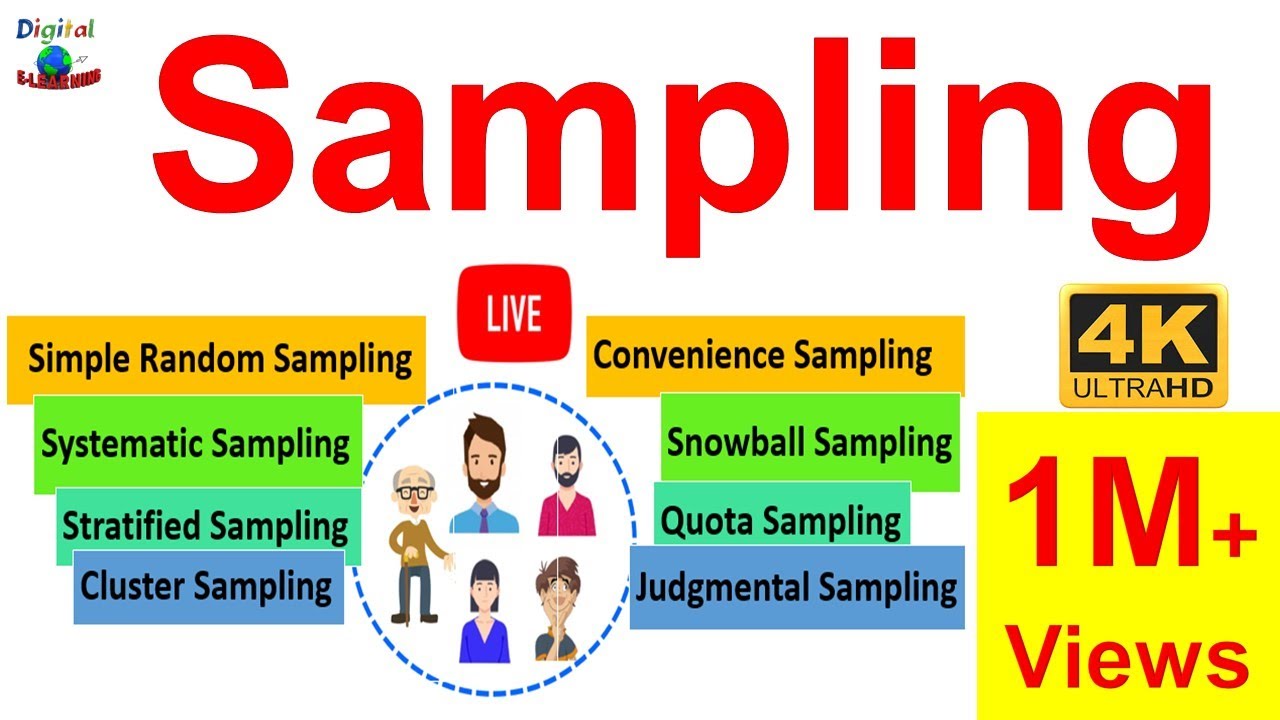Research: Meaning, Characteristics and Purposes
TLDRIn this educational video, Ronnie M., a research teacher, introduces the concept of research to students for the academic year 2020-2021. He defines research as a systematic and scientific process involving data gathering, analysis, and interpretation to solve problems or expand knowledge. The video outlines various goals and purposes of research, such as discovering new facts, improving techniques, and promoting health. It also highlights key characteristics of research, including its systematic, controlled, and empirical nature. The teacher encourages students to embrace the role of researchers, emphasizing the importance of research in advancing human life and society.
Takeaways
- 🔍 Research is defined as a systematic, scientific process aimed at problem-solving, prediction, discovery, or knowledge expansion.
- 📚 Multiple definitions of research exist, each emphasizing different aspects like critical inquiry, systematic search, and data collection.
- 🌟 The ultimate goal of research is to improve the quality of human life through various means such as discovery, problem-solving, and knowledge expansion.
- 🛠️ Research has various purposes, including discovering new facts, solving problems, improving techniques, and providing a basis for decision-making.
- 🧬 An example of research impact is the evolution of understanding substances and elements, which has increased from 92 to over 100 due to scientific inquiry.
- 🧐 Research is characterized by being systematic, controlled, empirical, analytical, objective, and employing hypotheses to guide investigation.
- 🔢 It involves original work, often requiring quantitative or statistical methods for data analysis to determine significance.
- 👨🏫 Conducted by experts, research demands the use of valid procedures and instruments, and expert scrutiny to ensure accuracy.
- 🕵️♂️ Research requires patience, as it is a time-consuming and effort-intensive process that must be conducted meticulously to avoid flawed conclusions.
- 💪 Courage is a key characteristic for researchers, as they may face challenges such as public disapproval and must be willing to withstand potential discomforts.
Q & A
What is the primary purpose of research according to the script?
-The primary purpose of research is the preservation and improvement of the quality of human life. All kinds of research are directed toward this end.
What are the common elements found in various definitions of research by different authors?
-The common elements in various definitions of research include a systematic, scientific process of gathering, analyzing, classifying, organizing, presenting, and interpreting data for problem-solving, prediction, invention, discovery of truth, or the expansion or verification of existing knowledge.
What is one of the definitions of research given by an author named 'View'?
-According to an author named 'View', research is a careful, critical, disciplined inquiry, varying technique and method according to the nature and conditions of the problem identified, directed towards the clarification or resolution of a problem.
What is the definition of research given by P. Aquino?
-P. Aquino defines research as the systematic search for new information on a specific topic or problem.
What are the different goals and purposes of research mentioned in the script?
-The goals and purposes of research include discovering new facts about known phenomena, finding answers to partially solved problems, improving existing techniques, discovering new substances or elements, understanding the pathways of action of known substances, ordering valid generalizations into science, providing basis for decision making, satisfying researchers' curiosity, finding answers to queries through scientific methods, acquiring a deeper understanding of phenomena, expanding or verifying existing knowledge, promoting health and prolonging life, providing basic needs, and making work, travel, and communication faster, easier, and more comfortable.
What is the role of research in the context of decision making?
-Research plays a crucial role in decision making by providing a research approach, which is based on the results of research. This helps in making important decisions in various sectors such as business, industry, education, government, and other undertakings.
How is research characterized as systematic according to the script?
-Research is systematic as it follows an orderly and sequential procedure that leads to the discovery of truth, solution of a problem, or whatever is aimed to be discovered.
What does it mean for research to be controlled?
-Research is controlled when all variables, except those being tested or experimented upon, are kept constant. This ensures that any changes observed in the subjects of the study can be attributed only to the experimental variable.
How is research described as empirical?
-Research is empirical when all procedures employed and data gathered are perceived in the same manner by all observers, ensuring that the findings are based on tangible and agreed-upon evidence.
What is the significance of research being analytical?
-The significance of research being analytical is that it involves a critical analysis of all data used, ensuring that there is no error in their interpretation and that findings are accurate and reliable.
Why is objectivity important in research?
-Objectivity is important in research to ensure that findings and conclusions are logically based on empirical data, without any effort to alter the results of the research, thus maintaining the integrity and credibility of the study.
What is the role of hypotheses in research?
-Hypotheses play a crucial role in guiding the investigation process in research. In experimental studies, hypotheses are expressly stated and tested, while in descriptive studies, specific sub-problems or questions serve as hypotheses.
Why is originality important in research?
-Originality is important in research to ensure that the data gathered are from primary or first-hand sources, which guarantees that the research work is original and contributes new knowledge to the field.
How does research employ quantitative or statistical methods?
-Research employs quantitative or statistical methods by transforming data into numerical measures and treating them statistically to determine their significance or usefulness in the context of the study.
Why is expertise important in conducting research?
-Expertise is important in conducting research because the researcher uses valid and carefully designed procedures, valid data gathering instruments, and valid data. Expertise ensures that the research is conducted with accuracy and contributes meaningfully to the field.
What does it mean for research to be accurate?
-For research to be accurate means that every research activity, including investigation, observation, and description, must be done precisely so that the findings lead to the formulation of scientific generalizations based on solid evidence.
Why is patience important in research?
-Patience is important in research to ensure accuracy. Research that is hurriedly done or conducted carelessly may lead to shaky conclusions and generalizations, undermining the validity of the study.
What does it mean for research to require an effort-making capacity?
-Research requiring an effort-making capacity means that no research can be conducted without the exertion of much effort. It involves a significant amount of work and time, and those without the capacity to exert effort cannot conduct research successfully.
Why does research require courage?
-Research requires courage because the researcher often faces hazards, discomforts, public and social disapproval, and may encounter disagreements with colleagues. Courage is needed to persevere through these challenges in the pursuit of knowledge.
Outlines
📚 Introduction to Research
This paragraph introduces the concept of research, its importance, and the aim of the 'Research One' course for the academic year 2020-2021. Ronnie M., the research teacher, welcomes students and outlines the goals and purposes of research. It defines research as a systematic and scientific process involving gathering, analyzing, and interpreting data to solve problems, make predictions, discover truths, or expand knowledge. The paragraph highlights various definitions of research by different authors and synthesizes them into a general definition. It also lists the purposes and goals of research, such as discovering new facts, finding solutions to problems, improving techniques, and expanding knowledge.
🔍 Purposes and Goals of Research
This paragraph delves deeper into the specific purposes and goals of research. It enumerates various objectives, such as discovering new facts about known phenomena, finding answers to partially solved problems like cancer, improving existing techniques, and developing new products. It also discusses the importance of research in discovering new elements, understanding the effects of substances, and making informed decisions in various fields. The paragraph emphasizes the role of research in satisfying curiosity, expanding knowledge, promoting health, and improving the quality of life. The ultimate purpose of research is presented as the preservation and enhancement of human life.
🔬 Characteristics of Research
The final paragraph outlines the key characteristics that define research. It describes research as systematic, controlled, empirical, and analytical, ensuring that findings are based on observable and verifiable data. The paragraph highlights the objectivity of research, stating that conclusions are logically derived from empirical evidence without bias. It also mentions the use of hypotheses to guide the investigation process and the importance of original work in research. The characteristics include the use of quantitative methods, expert involvement, accuracy, patience, effort, and courage, which are all essential for conducting meaningful and impactful research.
Mindmap
Keywords
💡Research
💡Purposively
💡Systematic
💡Scientific Process
💡Problem-solving
💡Prediction
💡Data Collection
💡Hypotheses
💡Empirical
💡Objective
💡Expertise
💡Curiosity
💡Verification
💡Human Life
Highlights
Introduction to the definition, nature, and characteristics of research by Ronnie M. Absolute Junior.
Research defined as a key to progress and an important part of society.
Research aims to develop skills in its conduct among learners.
Definition of research as a careful, critical discipline inquiry by an author named View.
P Aquino's definition of research as a systematic search for specific information.
Research as a process of gathering data in a scientific manner according to Manuel and Middle.
Press and Rest's definition of research as an attempt to gain solutions to problems through data collection.
General definition of research as a systematic and scientific process for problem-solving and knowledge expansion.
The main purpose of research is the preservation and improvement of the quality of human life.
Research goals include discovering new facts, solving problems, and improving existing techniques.
The role of research in discovering previously unrecognized substances or elements.
Research's contribution to understanding the pathways of action of known substances.
The importance of research in providing a basis for decision-making across various sectors.
Research's role in satisfying researchers' curiosity and leading to inventions like the incubator.
Research's aim to provide a better understanding of phenomena and expand or verify existing knowledge.
The impact of research on promoting health, prolonging life, and fulfilling basic human needs.
Characteristics of research, including being systematic, controlled, empirical, and analytical.
Research's requirement for objectivity, unbiased conclusions, and logical interpretation of data.
The importance of hypotheses in guiding the research investigation process.
Research as original work requiring data from primary sources and expert validation.
The necessity of quantitative or statistical methods in research for data significance.
Research's demand for accuracy, patience, and effort-making capacity.
Courage as a required characteristic for researchers due to potential hazards and public disapproval.
Conclusion on the readiness of students to be called student researchers after understanding research.
Transcripts
Browse More Related Video

PRACTICAL RESEARCH 1 - Nature of Inquiry and Research

PRACTICAL RESEARCH 1 - What is Research? - EP.1 (Research Simplified)

Sampling: Sampling & its Types | Simple Random, Convenience, Systematic, Cluster, Stratified

PRACTICAL RESEARCH 1 - Characteristics of Research - EP.2 (Research Simplified)

7 NEW Hottest FREE AI Tools for Research That Are ACTUALLY Useful!

PRACTICAL RESEARCH 1 - Qualitative and Quantitative Research - EP.5 (Research Simplified)
5.0 / 5 (0 votes)
Thanks for rating: